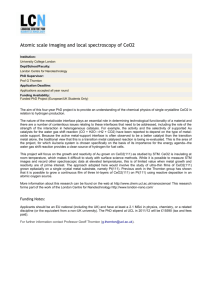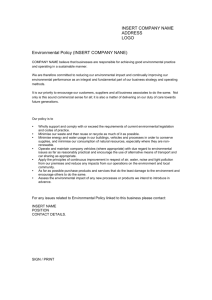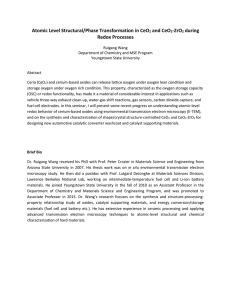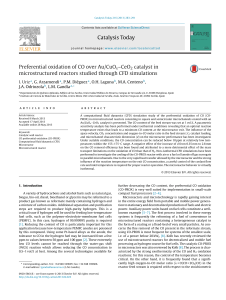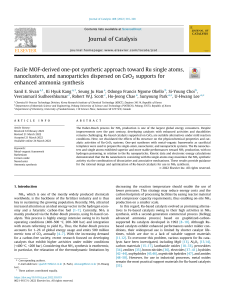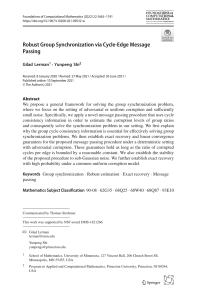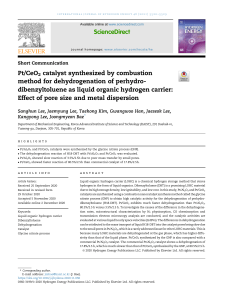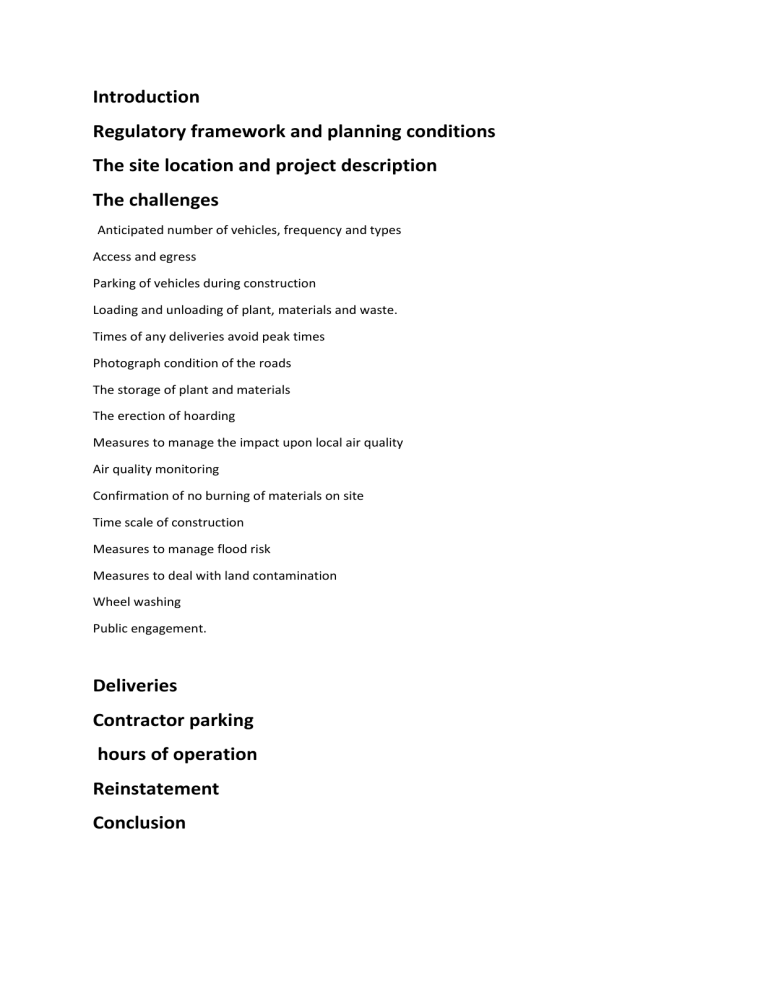
Introduction Regulatory framework and planning conditions The site location and project description The challenges Anticipated number of vehicles, frequency and types Access and egress Parking of vehicles during construction Loading and unloading of plant, materials and waste. Times of any deliveries avoid peak times Photograph condition of the roads The storage of plant and materials The erection of hoarding Measures to manage the impact upon local air quality Air quality monitoring Confirmation of no burning of materials on site Time scale of construction Measures to manage flood risk Measures to deal with land contamination Wheel washing Public engagement. Deliveries Contractor parking hours of operation Reinstatement Conclusion Introduction The aim of the construction Environmental Management Plan (CEMP) is to set out the responsibilities with regard to compliance with legislation and to implement any mitigation measures. This CEMP details management measures to minimise environmental impact from the construction phase of the development. Further it provides a framework within which the measures will be implemented throughout the project. The CEMP provides project specific management measures and is a dynamic document which should be reviewed if activities or conditions onsite change that may influence management measures. This document has been developed to avoid, minimise and mitigate against any constructions effect on the environment and surrounding community. It should be considered a living document with reviews being undertaken at set and new information. For the purpose of this document, the working area is defined as any area where there will be a requirement for temporary or permanent works to facilitate the construction of development. This includes areas required for access, temporary construction and temporary storage areas.
